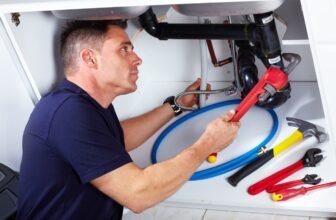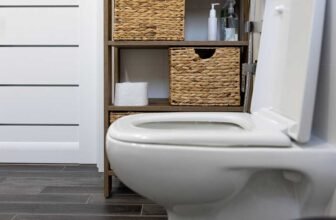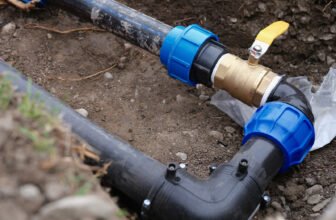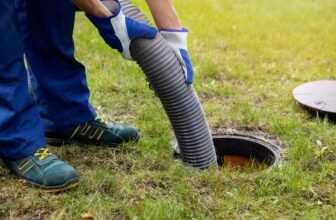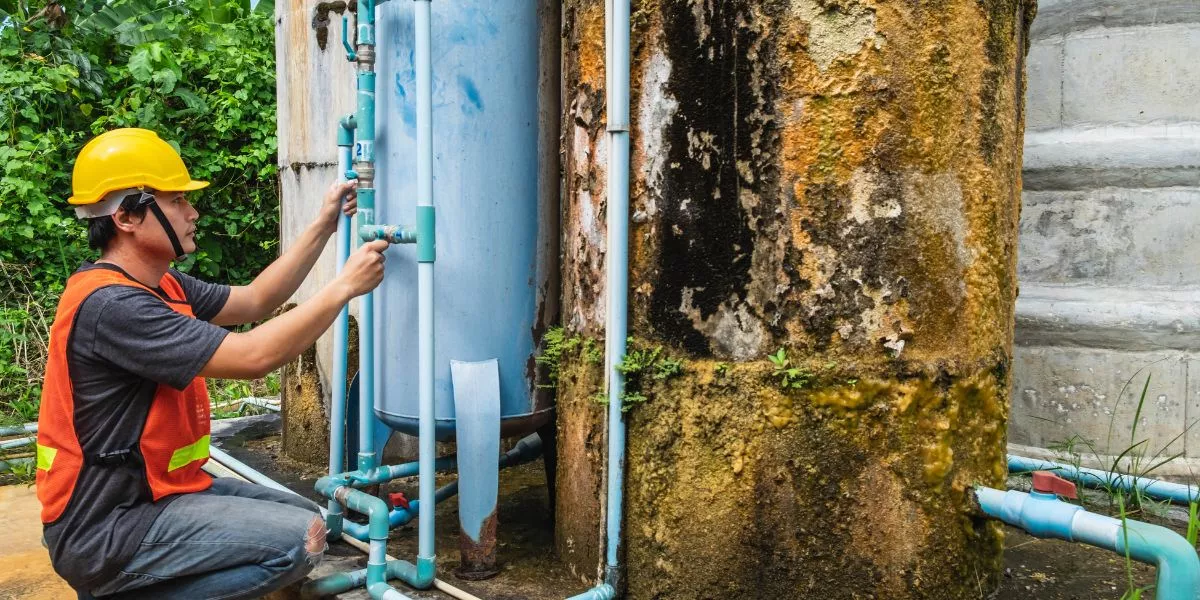
You might not realize how simple it is to make your home more eco-friendly while saving on water bills. By implementing a few straightforward changes, you can significantly reduce water usage without sacrificing comfort. From low-flow fixtures to smart gardening techniques, these strategies not only benefit the environment but also enhance your daily living. Curious about the specific steps you can take to start making a difference? Let's explore some effective options.
Install Low-Flow Fixtures
When you install low-flow fixtures, you not only conserve water but also reduce your utility bills.
These fixtures, such as faucets, showerheads, and toilets, are designed to use significantly less water without sacrificing performance.
You'll notice that low-flow showerheads can deliver a satisfying stream while using less than 2.5 gallons per minute.
Similarly, low-flow toilets can use as little as 1.28 gallons per flush, compared to older models that may use 3.5 gallons or more.
By making this simple switch, you actively contribute to water conservation efforts and help protect the environment.
Plus, you'll appreciate the savings reflected in your monthly bills.
Investing in low-flow fixtures is a smart, eco-friendly choice that benefits both your wallet and the planet.
Fix Leaks Promptly
Installing low-flow fixtures is a great step toward conserving water, but fixing leaks promptly is just as important.
Even a tiny drip can waste gallons of water each day, adding up to higher bills and environmental harm. Check your faucets, showerheads, and toilets for any signs of leaks. If you notice dripping or pooling water, don't wait—fix it immediately.
Most leaks can be repaired with simple tools and a little time. Replace worn washers, tighten connections, or use plumber's tape for added sealing. You'll not only save water but also prevent potential damage to your home.
Make it a habit to inspect your plumbing regularly, and you'll contribute significantly to a more sustainable household.
Use a Dual-Flush Toilet
Switching to a dual-flush toilet can significantly reduce your water usage while still providing effective waste removal.
These toilets offer two flush options: a low-volume flush for liquid waste and a higher-volume flush for solid waste. By choosing the appropriate flush, you'll use only the amount of water needed, minimizing waste.
Installing a dual-flush toilet not only saves water but can also lower your utility bills. Many models are easy to install and fit seamlessly into your bathroom.
Plus, they come in various styles, so you can find one that matches your decor.
Embracing this eco-friendly option is a simple yet impactful way to contribute to water conservation efforts in your home.
Make the switch today and start saving!
Collect Rainwater
Collecting rainwater is another effective way to enhance your home's eco-friendliness and conserve water.
By setting up a rain barrel or a cistern, you can gather water from your roof during storms. This water can be used for various purposes, like watering your garden, washing your car, or even flushing toilets.
Make sure to position your collection system under a downspout to maximize efficiency, and consider using a first-flush diverter to ensure you're only collecting clean water.
Remember to maintain your system regularly to prevent debris buildup and mosquito breeding.
By harnessing this natural resource, you not only save on your water bill but also contribute to a more sustainable environment.
Start collecting rainwater today and watch your impact grow!
Limit Shower Time
While you might enjoy long, relaxing showers, limiting your shower time can significantly reduce water usage and lower your utility bills.
Consider setting a timer for 5 to 10 minutes to encourage quicker washes. You'll not only save water but also make your shower routine more efficient.
Try using a water-efficient showerhead, which provides a satisfying spray while using less water. Keeping a waterproof clock in your bathroom can help you track your time.
You can also make it a fun challenge—see how quickly you can get clean without sacrificing comfort.
By making these small adjustments, you'll contribute to a sustainable environment while enjoying the benefits of lower water costs.
Every drop counts, so take action today!
Turn Off the Tap While Brushing
Although it may seem harmless to leave the tap running while brushing your teeth, doing so can waste a significant amount of water. In fact, you could waste up to four gallons of water each time you brush if you let the faucet run.
Instead, turn off the tap while you're applying toothpaste and brushing. When you need to rinse your mouth, turn it back on briefly. This simple habit can make a big difference in your water usage and bills.
Plus, it sets a great example for family members, encouraging everyone to be more mindful of water conservation. By making this small change, you'll help protect the environment and preserve our precious water resources for future generations.
Use a Broom Instead of a Hose
Instead of reaching for the hose to clean your driveway or patio, grab a broom for a more eco-friendly approach.
Using a broom not only saves water but also helps keep your outdoor spaces tidy without the waste. Hoses can use up to 10 gallons of water per minute, while a broom relies solely on your effort.
You'll find that sweeping away leaves, dirt, and debris is often quicker and more efficient than hosing everything down. Plus, it's a great way to get some exercise!
By making the switch to a broom, you're contributing to water conservation efforts and promoting a more sustainable lifestyle at home.
Run Full Loads in the Dishwasher and Washing Machine
Running full loads in your dishwasher and washing machine can significantly reduce water and energy usage.
When you wait to wash until you have a full load, you maximize the efficiency of each cycle. Dishwashers and washing machines use about the same amount of water regardless of the load size, so filling them to capacity means less water wasted overall.
Additionally, running fewer cycles saves energy, which benefits both your wallet and the environment.
If you think you need to wash smaller loads often, consider saving items until you have enough for a full cycle. By doing this, you'll not only conserve water but also prolong the lifespan of your appliances.
Make full loads your new routine, and watch your eco-friendly efforts pay off!
Water Plants Wisely
Maximizing water efficiency doesn't stop with your appliances; it extends to how you care for your garden or plants.
To conserve water, consider watering your plants early in the morning or late in the evening. This reduces evaporation and ensures your plants absorb more moisture. Use drip irrigation or soaker hoses to target the roots directly, minimizing water waste.
Group plants with similar watering needs together to streamline your efforts. Mulching around plants helps retain soil moisture and reduces the need for frequent watering.
Additionally, collect rainwater in barrels to use for irrigation. By implementing these strategies, you'll not only save water but also promote healthier, more resilient plants in your garden.
Insulate Pipes to Reduce Heat Loss
Although you may not think about it often, insulating your pipes can significantly reduce heat loss and improve energy efficiency in your home.
When hot water travels through uninsulated pipes, it cools down quickly, causing your water heater to work harder. By wrapping your pipes in insulation, you're keeping the heat where it belongs—inside the pipes. This not only saves energy but also lowers your utility bills.
You can easily find pipe insulation materials at hardware stores, and installing them is a straightforward DIY project. Make sure to cover both hot and cold water pipes, especially those in unheated areas.
Taking this simple step not only benefits your wallet but also contributes to a more eco-friendly home.
Conclusion
By implementing these eco-friendly plumbing tips, you can make a significant impact on water conservation at home. Installing low-flow fixtures, fixing leaks quickly, and using a dual-flush toilet are just a few steps you can take. Remember to limit shower time and water your plants wisely. With these simple changes, you'll not only save water but also lower your utility bills. Start today, and enjoy the benefits of a more sustainable and efficient home!

